Mystery after hundreds of ‘toxic’ tar balls appear on beaches
‘Unusual’ light grey-white colour balls have polluted the beaches as their origin remains known
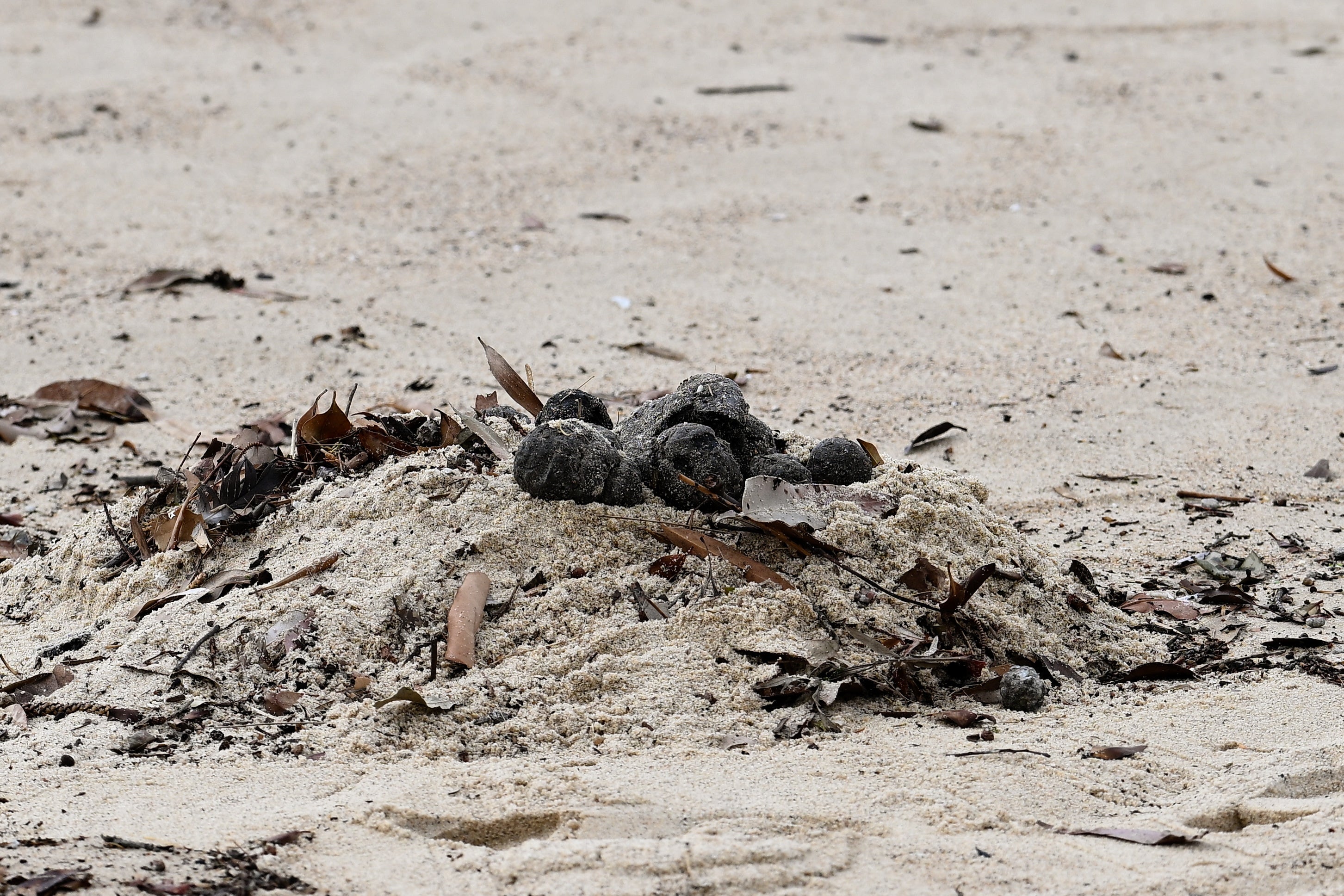
Your support helps us to tell the story
From reproductive rights to climate change to Big Tech, The Independent is on the ground when the story is developing. Whether it's investigating the financials of Elon Musk's pro-Trump PAC or producing our latest documentary, 'The A Word', which shines a light on the American women fighting for reproductive rights, we know how important it is to parse out the facts from the messaging.
At such a critical moment in US history, we need reporters on the ground. Your donation allows us to keep sending journalists to speak to both sides of the story.
The Independent is trusted by Americans across the entire political spectrum. And unlike many other quality news outlets, we choose not to lock Americans out of our reporting and analysis with paywalls. We believe quality journalism should be available to everyone, paid for by those who can afford it.
Your support makes all the difference.Hundreds of golf ball-sized black balls have washed up on several Sydney beaches, prompting the closure of seven popular spots as authorities conducted clean-up operations and investigated their origin.
The black solid masses have been confirmed as “tar balls” after they were first spotted on Coogee Beach on Tuesday.
Since then, these mysterious balls have been spotted further north at Bondi, Tamarama, and Bronte beaches, leading to beach closures for swimmers, surfers, and tourists.
Pictures and videos showed workers wearing hazmat suits collecting the back spheres in plastic bags as beaches remained shut.
Waverley Council closed Bondi, Bronte, and Tamarama beaches as a precaution on Thursday evening, while Randwick Council closed four additional beaches, including Clovelly, Maroubra, Gordons Bay, and Coogee.
Authorities have advised the public to avoid contact with the tar balls until further notice.
New South Wales state’s Environment Protection Authority said the thousands of balls were made of tar and they were conducting its own tests.
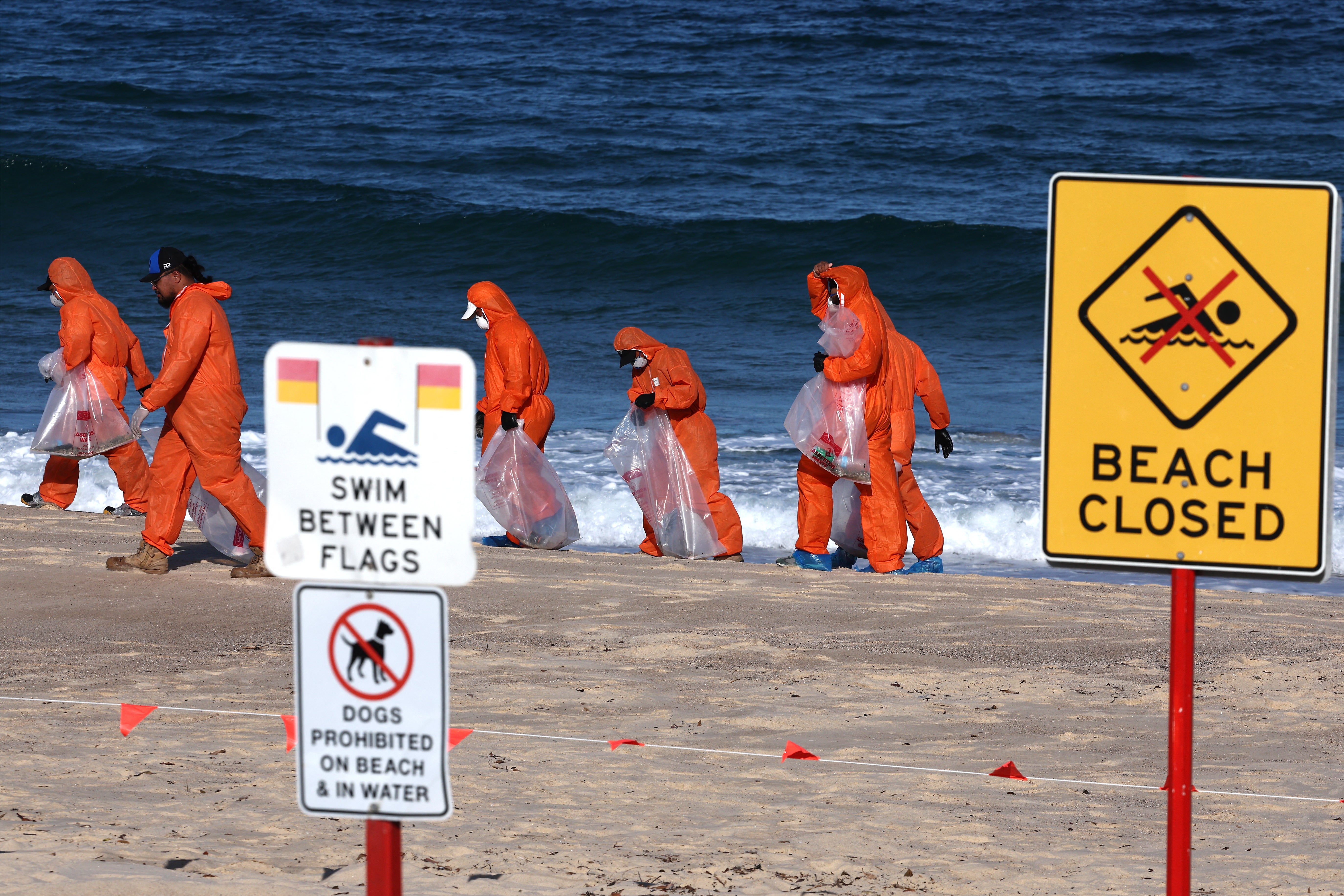
On Wednesday evening, Randwick council said preliminary lab test results suggested that the dark spheres were made of tar which could be formed when oil comes into contact with debris and water as a result of oil spills or seepage.
It said the “preliminary test results … show the material is a hydrocarbon-based pollutant which is consistent with the makeup of tar balls”. Hydrocarbons are primarily found in natural sources like petroleum, natural gas, and coal.
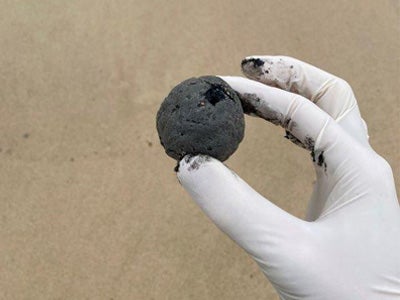
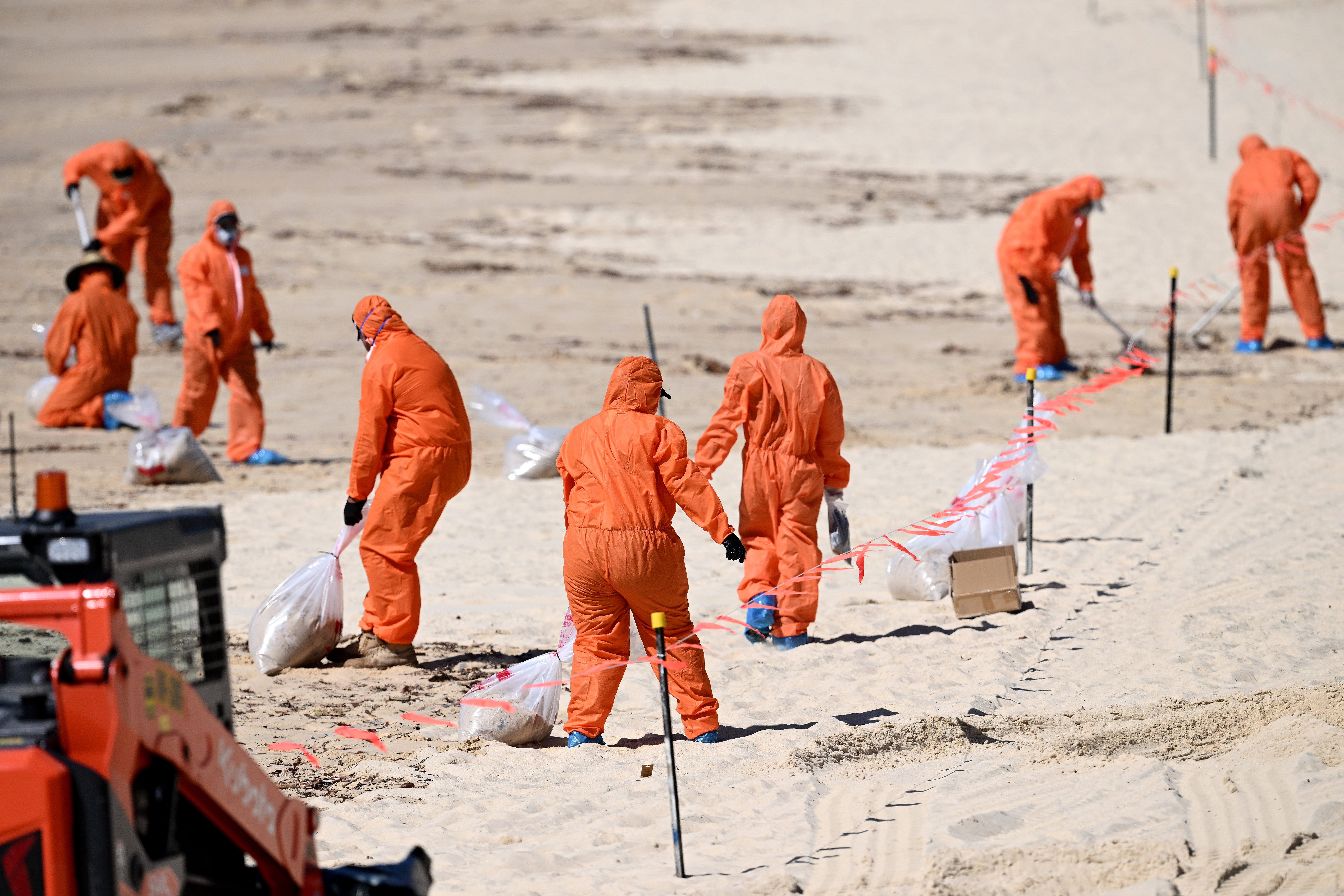
The NSW Maritime and the Australian Maritime Safety Authority said they are currently investigating the potential origins of the tar balls.
"[The Australian Maritime Safety Authority] will do reverse modelling and drift modelling, take into account the currents and the wind, for [NSW Maritime] to be able to work out whether it’s come from the south, north or east off the coast of New South Wales," director Darren Wood told ABC Radio Sydney.
However council employees on jetskis detected a possible oil slick in the sea on Wednesday morning, Randwick council mayor, Dylan Parker.
But no oil spills have been reported in the area by vessels, the Port Authority of NSW said.
“We don’t yet know what has happened to produce the debris washing up on our beaches,” Mr Parker said in a statement on Thursday. “We will continue to work with relevant authorities to ensure the safety of the public and clean up our beaches.”
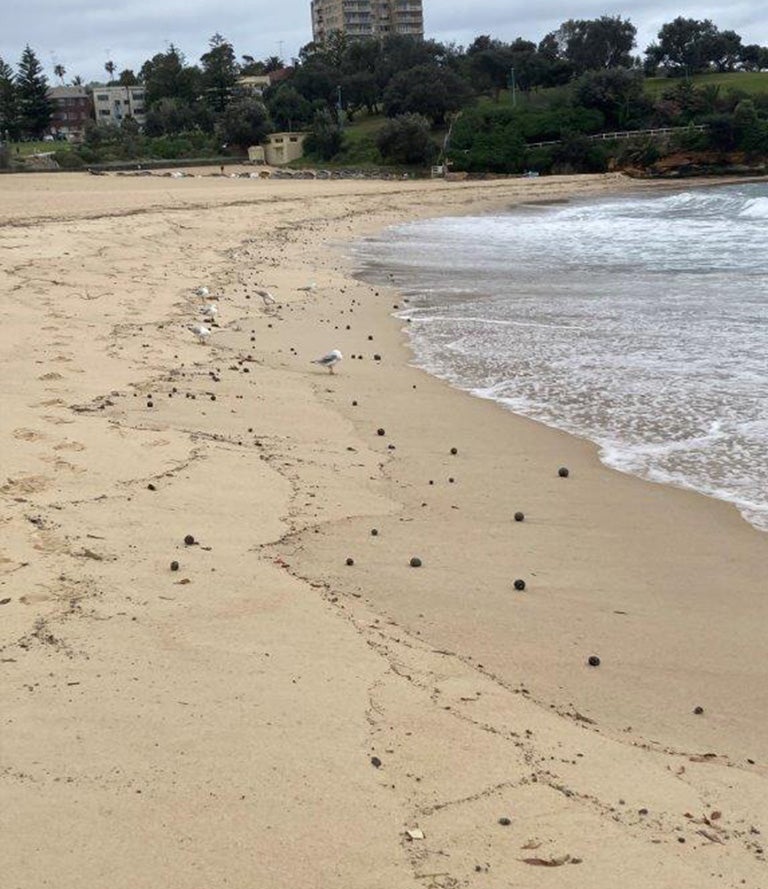
Waverley council identified the balls as “pea to marble-size” with a light grey-white colour.
“As a precaution, all Waverley beaches will be closed until further investigation has been carried out by the EPA and relevant government bodies,” the council said.
The New South Wales premier, Chris Minns, called it an “unusual occurrence”.
However, the Port Authority of NSW said no oil spills had been reported by vessels.
Experts have said the tar balls could be harmful to both the environment and human health. Tar balls may contain polycyclic aromatic hydrocarbons (PAHs), which are known to be carcinogenic.
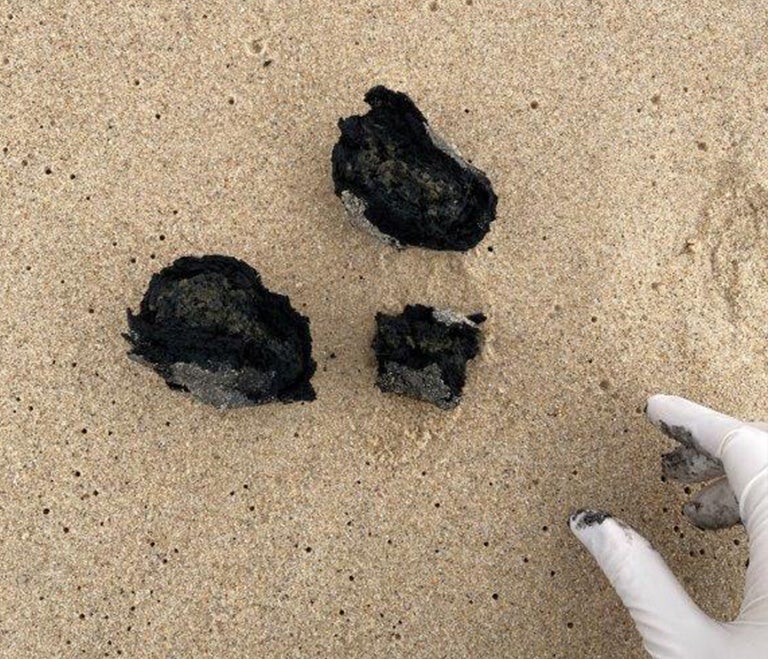
It can also be harmful if they enter into human bodies indirectly through the food chain with individuals eating marine products that have ingested the toxic products, they said.
Stephen Lemon, EPA’s executive director of operations, said the material is “fibrous” and “unusual”.
“We are actually seeing, as we move away from the Coogee area, the size of the balls are getting smaller,” Mr Lemon said.
“Probably getting a lot of wave action in the surf zone, breaking that material up.”
Join our commenting forum
Join thought-provoking conversations, follow other Independent readers and see their replies
Comments